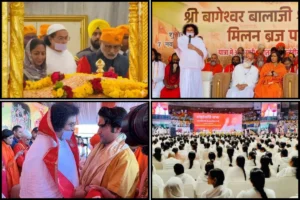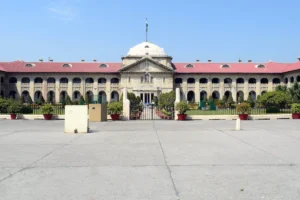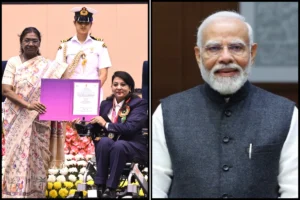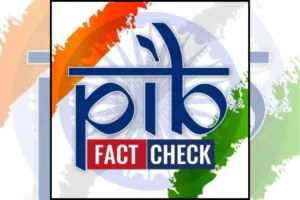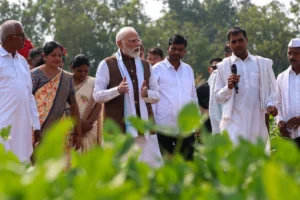
Santiniketan, the place where Nobel Laureate poet Rabindranath Tagore built Visva-Bharati over a century ago, has been recommended for inclusion in the UNESCO World Heritage List by an international advisory body, Union Culture Minister G Kishan Reddy said.
India has been striving for long to get a UNESCO tag for this cultural site located in West Bengal’s Birbhum district.
“Great news for India on the Jayanti of Gurudev Rabindranath Tagore. Santiniketan in West Bengal has been recommended for inscription to the World Heritage List by ICOMOS, the advisory body to UNESCO World Heritage Centre,” Reddy said in a late-night tweet on Tuesday.
“This furthers the vision of PM Narendra Modi to showcase our rich cultural heritage to the world. This will formally be announced in the World Heritage Committee meeting to be held at Riyadh, Saudi Arabia in September 2023,” the minister said in his tweet.
Also read: PM Modi To Visit Washington DC In June, Announces The White House
The France-based International Council on Monuments and Sites (ICOMOS) is an international non-governmental organization comprising professionals, experts, and representatives from local authorities, companies and heritage organizations, and is dedicated to conserving and enhancing architectural and landscape heritage around the world.
At a media interaction in Delhi on Wednesday, Reddy spoke about ICOMOS’s recommendation and said when ICOMOS makes its recommendation, it becomes “almost certain” that the World Heritage Committee will accept it, so India, in September is likely to have another reason to rejoice.
The development has been hailed as a “proud moment” by the authorities of the university.
“To our knowledge, Visva-Bharati is the first living university in India which will be bestowed with the honour,” its spokesperson Mahua Bandyopadhyay told PTI on Wednesday. She said a top Archeological Survey of India official informed the university on Tuesday about the recommendation by ICOSMOS for the inscription of Visva-Bharati in the World Heritage List.
“This news coming on the birth anniversary of Gurudev (Rabindra Nath Tagore) should be a proud moment for Bengal and the country”. Gurudev’s 162nd birth anniversary fell on May 9, the 25th day of the Hindu month of Baisakh which has earned a special importance among Bengalis worldwide.
Varsity’s Vice-chancellor Bidyut Chakraborty said, “It is great news and a matter of pride for everyone – every stakeholder of Visva Bharati, in fact, every citizen of the land.” Visva-Bharati, which means communion of the world with India, was built by Tagore, the first Asian to win the Nobel Prize, in the twin towns of Santiniketan and Sriniketan in 1921. Before Independence, it was regarded as a college. In 1951 it was declared an institute of national importance by an act of Parliament and given the status of a central university. The president of India is the ‘Paridarsaka’ (visitor) of the University, the prime minister is the ‘Acharya’ (chancellor) and the governor of West Bengal is the ‘Pradhana’ (rector) of the university.
Santiniketan, over 160 km from Kolkata, was originally an ashram built by Tagore’s father Debendranath Tagore, where anyone, irrespective of caste and creed, could come to meditate, according to a description of the place on the official website of the UNESCO World Heritage Centre.
Debendranath Tagore, also known as ‘Maharshi’, meaning one who is both a saint and sage, was a leading figure of the Indian Renaissance, it says.
Also read: Inspiring Story Of 22 Sikh Women Amid The Pain Of Partition
“Among the structures built by the Maharshi was the Santiniketan Griha and the beautiful stained glass Mandir (Upasana Griha), or temple where worship is non-denominational. Both structures built in the second half of the 19th century are important in their association with the founding of Santiniketan and the universal spirit associated with the revival and reinterpretation of religious ideals in Bengal and India,” the website says.
Visva Bharati has degree courses in humanities, social science, science, fine arts, music, performing arts, education, agricultural science and rural reconstruction.
India has a total of 40 sites that enjoy the UNESCO World Heritage tag. These include 32 cultural sites such as Agra Fort, Taj Mahal, Harappan-era site in Dholavira, Elephanta Caves, Red Fort complex in Delhi, and Mahabodhi Temple complex in Bodh Gaya in Bihar.
The 52 sites in the Tentative List also include Temples at Bishnupur, West Bengal (added to the list in 1998); Mattanchery Palace in Kerala (added in 1998); Wild Ass Sanctuary, Little Rann of Kutch in Gujarat (added in 2006), according to the UNESCO website.
The UNESCO website describes a tentative list as an “inventory of those properties which each State Party intends to consider for nomination”.
(Source – PTI)
To read more such news, download Bharat Express news apps












